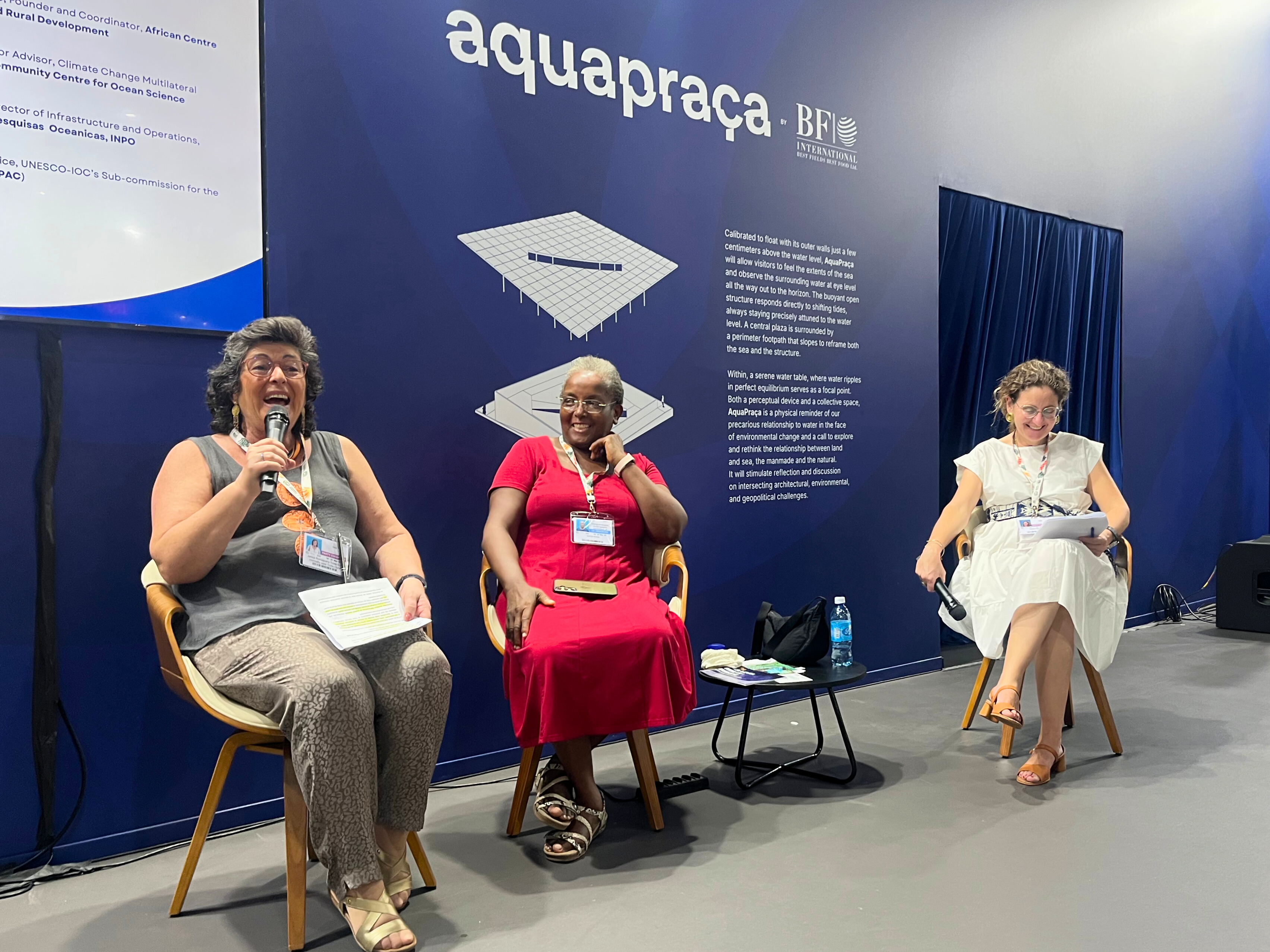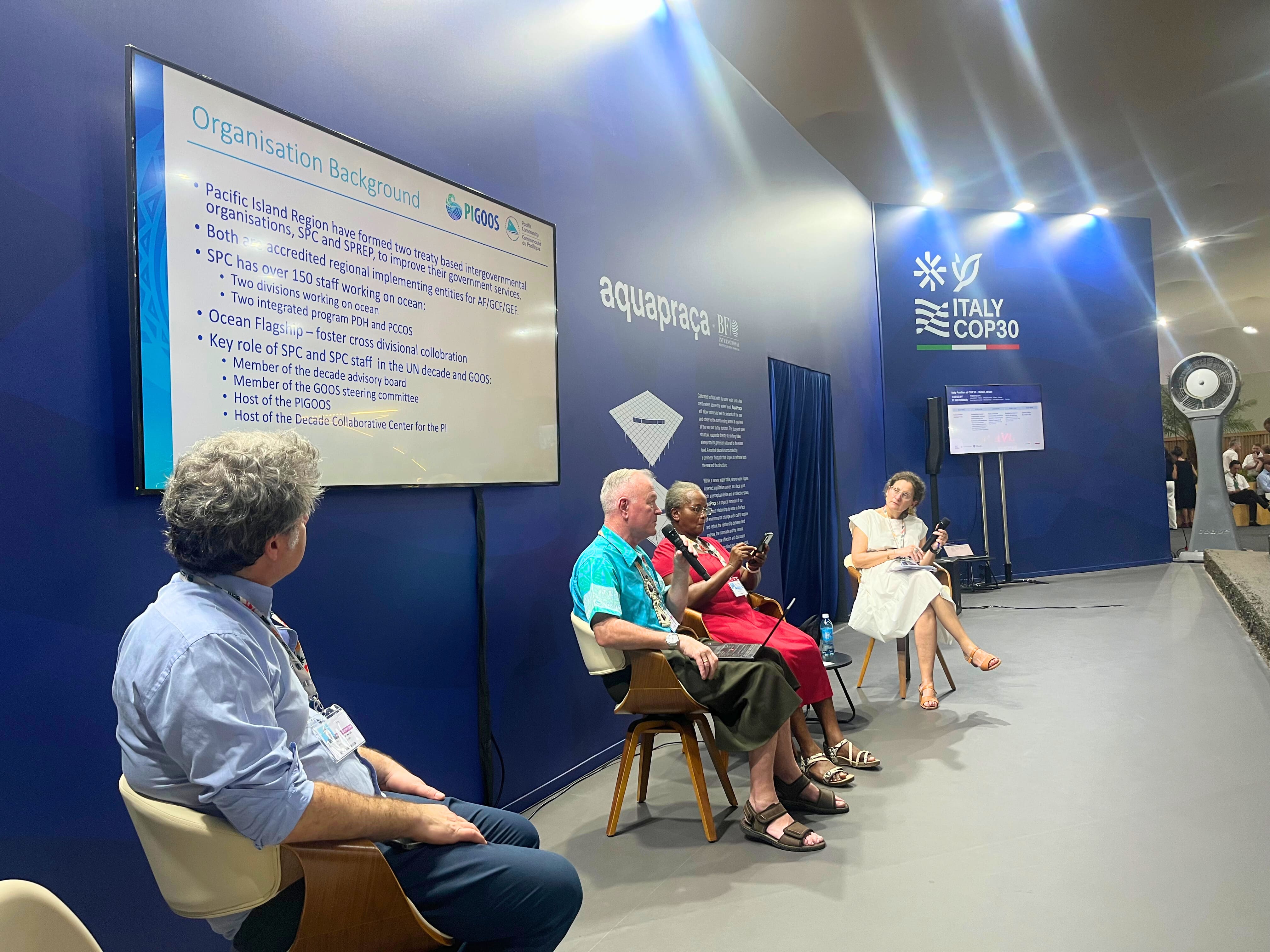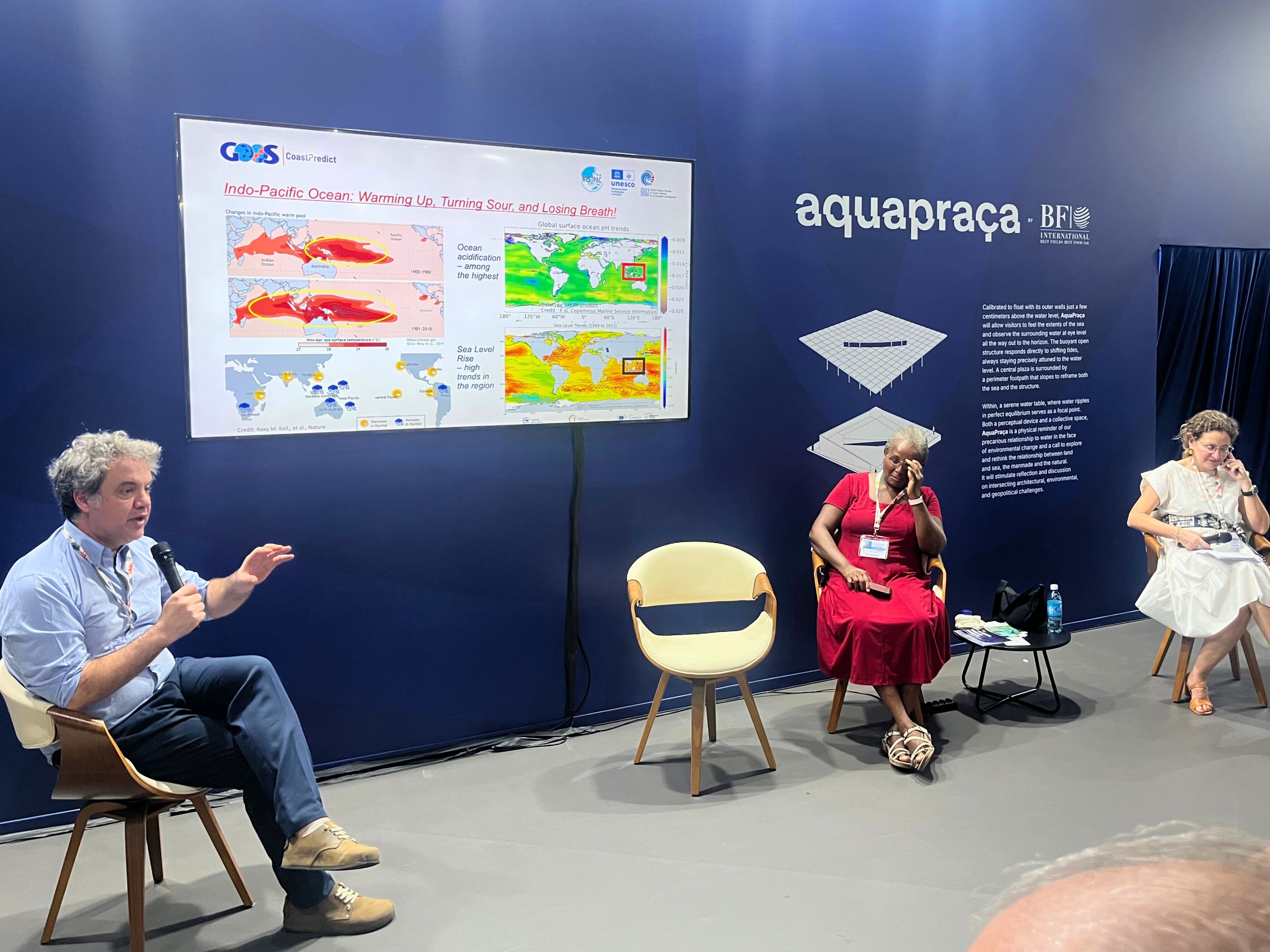Coastal resilience in focus: global collaboration at COP30
At COP30, the DCC-CR, CoastPredict, and the CMCC Foundation brought together global voices to advance science-based pathways for resilient and adaptive coastal communities
Published on 11 November 2025 | News
On November 11, the Decade Collaborative Centre for Coastal Resilience, CoastPredict, and the CMCC Foundation brought together at COP30 global voices to advance science-based pathways for resilient and adaptive coastal communities.
As part of one of the world’s most influential climate gatherings, the side event “Empowering Coastal Communities: Science-based Solutions for Resilience and Adaptation” offered a timely space to highlight how science and local knowledge can come together to strengthen resilience at the coast. Organized by DCC-CR and CoastPredict, with CMCC as co-organizer, the session gathered representatives from international organizations to explore new ways of connecting knowledge with action.
Speakers from UNESCO-IOC’s regional commissions and the Pacific Community Centre for Ocean Science shared insights from across the Tropical Americas and Caribbean, the South Pacific, and Western Asia. Their presentations showcased the diversity of coastal challenges and the potential of shared learning through global networks such as GlobalCoast — linking more than 135 pilot sites in over 70 countries through the GOOS programme.
Discussions highlighted a clear message: effective coastal resilience begins locally. Many participants underlined how real change often starts at the pilot-site level, where communities experience the impacts of climate change firsthand. From there, local observations, needs, and solutions can be transformed into operational science that informs broader adaptation strategies.
A strong focus emerged on the dialogue between scientific and traditional knowledge. Several speakers emphasized that the two are not in competition but can enrich each other — local and Indigenous knowledge often captures nuances that science alone may overlook. Integrating these perspectives requires not only scientific openness but also inclusive processes that give space to women, Indigenous peoples, and other marginalized groups, who are often among the most affected by climate change.
The exchange of best practices further pointed to the value of accessible, community-based observing systems. Low-cost, citizen-science approaches were recognized as particularly promising, especially for regions in the Global South where maintenance and long-term costs make high-tech solutions less viable. As one speaker from INPO, who joined the round table, remarked: “One size won’t fit all in terms of science.”
For DCC-CR and its partners, this presence at COP30 marked a meaningful step. After more than two decades of climate negotiations in which the ocean has often remained in the background, coastal resilience is now gaining the visibility and commitment it deserves.
The event closed with a shared understanding: building resilience at the coast is not only a scientific challenge but a collective endeavor. It calls for shared science, shared responsibility, and shared solutions — connecting communities across regions and oceans to turn knowledge into action.
Together, we are shaping a future where coastal communities don’t just adapt to change — they lead it.
Album





